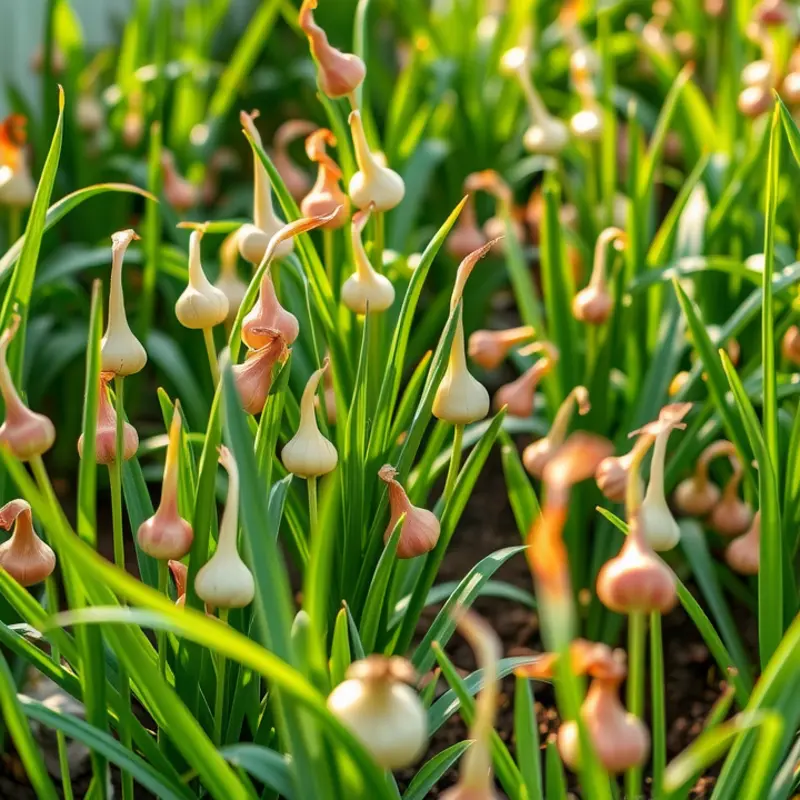Shallots, often overshadowed by their larger relatives like onions and garlic, are a powerhouse of nutrients. These small, versatile bulbs offer a unique flavor profile while contributing significant health benefits. Whether used in salads, dressings, or cooked dishes, shallots can elevate your meals and wellness. Discover the impressive nutritional facts that highlight why shallots should become a staple in your health-conscious kitchen.
Nutritional Profile of Shallots

Shallots, often underestimated, are a powerhouse of nutrients and a staple of functional food gardens. These small bulbs are not only prized for their subtle sweetness and complex aroma but also their rich nutritional composition that supports everyday wellness.
One of the most remarkable aspects of shallots is their high antioxidant content. Antioxidants play a crucial role in protecting the body from oxidative stress, which contributes to chronic diseases. Shallots are particularly rich in quercetin, a potent antioxidant known for its anti-inflammatory and immune-boosting properties.
In terms of vitamins, shallots are infused with vitamin C, which supports the immune system and aids in skin health. A single serving provides a significant portion of the daily requirement. In addition, vitamin A present in shallots plays a vital role in maintaining healthy vision, skin, and mucous membranes.
Shallots are also a good source of several B-vitamins, including B6 (pyridoxine), which is essential for brain health and the formation of neurotransmitters. They contain folate, an important vitamin for cellular division and DNA synthesis, crucial for pregnant women to prevent neural tube defects. For those interested in more about maintaining nutritional adequacy, you might find this guide insightful.
When it comes to minerals, shallots boast a considerable amount of potassium, which is essential for cardiovascular health by maintaining normal blood pressure levels. The presence of iron aids in oxygen transportation throughout the body, while manganese supports bone health, metabolism, and the body’s antioxidant system.
A lesser-known fact is that shallots contain allicin, a compound similar to the one found in garlic. Allicin has been studied for its cholesterol-lowering effects and its potential to improve heart health. Such compounds in shallots align them closely with other heart-friendly superfoods.
Moreover, the fiber content in shallots is noteworthy, aiding digestion and promoting a healthy gut microbiome. Fiber is instrumental in maintaining optimal digestive health, reducing the risk of conditions like constipation and improving overall nutrient absorption.
Incorporating shallots into your diet can be simple and rewarding. They can be effortlessly added to salads, sauces, and soups, or used as a base for stews and casseroles. Their versatility makes them an excellent choice for anyone looking to enhance their culinary repertoire while supporting nutritional wellness.
Thus, shallots are much more than just a seasoning option. They present a diverse array of vitamins, minerals, and beneficial compounds that collectively promote a healthy lifestyle. Their nutritional benefits highlight the importance of including them in a balanced diet, making shallots a worthy candidate for any kitchen aiming to boost its nutrient profile.
Health Benefits and Culinary Uses

Shallots, often overshadowed by their larger relatives like onions and garlic, possess unique qualities that make them a remarkable addition to both your diet and wellness routine. Heart Health: Shallots are rich in flavonoids, which are known for their ability to support cardiovascular health. These compounds help in reducing blood pressure and improving circulation. Additionally, shallots are a valuable source of allicin, known to lower cholesterol levels and decrease blood vessel stiffness. Including them in your diet can help in maintaining a healthy heart, an essential factor for overall wellbeing.
Boost Immunity: Vitamin C in shallots enhances immune function, acting as a powerful antioxidant that fights off infections. Shallots also contain sulfur compounds that support the production of white blood cells, key players in the immune response. Regular consumption of shallots can fortify your body’s defense system, making you more resilient to common illnesses.
Anti-inflammatory Properties: The compounds in shallots exhibit excellent anti-inflammatory properties. Quercetin, a flavonoid abundant in shallots, helps reduce inflammation. This can be especially beneficial for those dealing with chronic inflammatory conditions such as arthritis. Consuming shallots regularly can contribute to a reduction in inflammation and improved joint health.
Culinary Uses: The delightful, subtle flavor of shallots makes them an excellent addition to various dishes. They can be used raw in salads, adding both flavor and crunch. Try caramelizing shallots to bring out their natural sweetness, which pairs wonderfully with roasted vegetables or meats. Shallots are also perfect for blending into dressings or sauces, offering a depth of flavor without overpowering the other ingredients. For more flavor-boosting ideas, the guide on flavor boosters without salt offers additional insights.
Incorporating shallots into your meals is an easy way to elevate both the taste and nutritional profile of your food. Whether sprinkled over a dish as a garnish or blended into a sauce, they offer a delightful and health-supportive addition to your culinary repertoire.
Final words
Embracing shallots in your meals not only adds distinct flavor but also enhances your overall health. With their rich nutritional profile and myriad health benefits, incorporating shallots into your diet is a simple and impactful way to support your wellness journey. From boosting immunity to promoting heart health, these small bulbs pack a big punch. They are a versatile ingredient that can elevate both simple and elaborate dishes. As you explore the world of shallots, consider how they can transform your culinary experiences and contribute to your daily wellness. Start incorporating shallots into your meals and reap the benefits!








